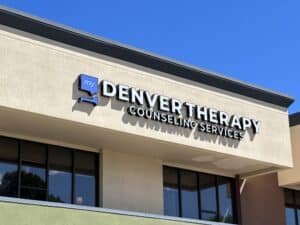It’s one of the most common questions we hear: “Does therapy actually work?” Maybe you’re considering therapy for the first time, or perhaps you’ve tried it before without the results you hoped for. It’s natural to wonder if investing your time, energy, and resources into psychotherapy will truly make a difference.
We get it. Making the decision to start therapy is significant. You want reassurance that it’s an effective path toward feeling better, improving relationships, and navigating life’s challenges.
The good news? The evidence is overwhelmingly clear. Yes, therapy works.
But don’t just take our word for it. Let’s look at what the research and statistics say about therapy success rates.
What the Research Says: Therapy Success Rates Overall
Decades of scientific study have consistently shown that psychotherapy is an effective treatment for a wide range of mental health concerns and life challenges. While individual experiences vary, the overall picture is incredibly positive.
Here are some key statistics on the effectiveness of therapy:
- The Majority Benefit: Research indicates that about 75% of people who enter psychotherapy show some benefit from it. That means three out of four people experience positive changes in their symptoms, well-being, or overall functioning.
- Improved Coping: Feeling overwhelmed? Therapy equips you with tools to manage life’s difficulties. In fact, 86% of people report that therapy helped them cope with what they were going through.
- Significant Improvement Compared to No Treatment: Studies comparing those who receive therapy to those who don’t have found that the average therapy client is better off than 79% of individuals who don’t seek treatment.
These numbers paint a compelling picture: engaging in therapy significantly increases your chances of feeling better and managing life more effectively. You can explore more about therapy’s effectiveness on our dedicated page.

More Than Talk: How Therapy Creates Real Change
You might wonder how talking to someone can lead to such significant results. Therapy is more than just venting (though feeling heard is important!). Skilled therapists use evidence-based techniques designed to help you:
- Understand your thoughts, feelings, and behaviors.
- Develop healthier coping strategies.
- Improve communication and relationship skills.
- Process past experiences.
- Change unhelpful patterns.
- Gain new perspectives.
Research even shows that psychotherapy is linked with positive changes in the brain and body, potentially strengthening neural connections associated with emotional regulation and rational thinking. It’s an active process of learning and growth that leads to lasting change.
Targeted Help: Success Rates for Specific Issues
While therapy is broadly effective, specific approaches are particularly successful for certain challenges:
- Cognitive Behavioral Therapy (CBT): Widely used for anxiety and depression, studies show high satisfaction rates (around 70%) and significant improvement for the majority of clients.
- EMDR (Eye Movement Desensitization and Reprocessing): This approach shows remarkable success for trauma recovery. Some studies indicate that up to 90% of single-trauma survivors no longer had PTSD symptoms after just three sessions, and over 70% experience relief from emotional distress linked to various issues. Learn more about EMDR Therapy at My Denver Therapy.
Whether you’re dealing with anxiety, depression, trauma, relationship issues, or life transitions, there are effective therapeutic approaches designed to help.
Finding Your Fit: Why Your Therapist Relationship Matters
Statistics provide a great overview, but your personal experience in therapy is crucial. Research consistently highlights that one of the most significant factors in successful therapy is the quality of the relationship between you and your therapist.
Feeling safe, understood, and respected by your therapist creates the foundation for meaningful work and positive outcomes. People who feel a strong connection with their therapist are more likely to engage fully and achieve their goals.
At My Denver Therapy, we prioritize matching you with a therapist who is not only skilled but also a good fit for your personality and needs.
The Verdict: Therapy is an Effective Path to Healing
The statistics consistently point in one direction: therapy is a highly effective way to improve mental health and well-being for most people. While it requires commitment and active participation, the potential rewards – feeling better, coping effectively, and living a more fulfilling life – are well-supported by evidence.
If you’re curious about other mental health statistics, such as how many people experience certain conditions, check out our overview of therapy and mental health statistics.
Ready to see if therapy is the right next step for you? We invite you to reach out to My Denver Therapy. Let’s talk about how we can support you on your journey.







